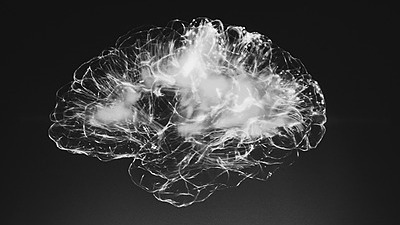Short Courses
Our updated on-demand platform ensures an enhanced user experience, offering more than 100 webinars and short courses from global experts, with free and paid options starting at $9.99. All offerings include CPD certificates available for instant download after completing the assessment. Start learning today. eiseEducation Short Courses are hosted on Thinkific.com
Understanding Dissociation and How to Work with It
Dr Nick Bendit
Dissociation is an area of mental health that few practitioners know much about. It is shrouded in mystery and controversy, but in the last 10 years there is an increasing literature of the science and clinical practice of dissociation. In particular, complex dissociation appears in clients with severe borderline personality disorder and clients with dissociative identity disorder. This Online Course will introduce you to dissociation, discuss cognitive neuroscience of dissociation, clinical syndromes in dissociation with both PTSD and BPD subtype, Dissociative Identity Disorder (DID) and treatment of Dissociative Identity Disorder (DID).
A Psychological Understanding of Loss, Grief & Mourning
Dr Paul Martin
This online course explores the dynamics of separation, grief, and mourning as integral aspects of normal development, focusing on their role in shaping an individual’s experience of loss. It provides a comprehensive understanding of various types of loss, the factors that amplify or alleviate the pain of grief, and the adjustments individuals must make in response. The course also examines how to assess potential pathological responses to loss and mourning, along with psychological treatments for both normal grief and complicated bereavement. Key topics include assessing grief, death and mortality across the lifespan, the connection between attachment theory and mourning, stage theories of grief, the psychodynamic perspective on loss, the neurobiology of the grieving brain, psychotherapy and treatment options, and an anthropological view of loss, grief, and mourning.
The Use of Imagery in the Treatment of Complex Trauma-related Dissociation
Prof Onno van der Hart
A survivor with a complex trauma-related dissociative disorder once remarked that therapists should realize that dissociative people have a great capacity for imagination, which often remains greatly under-utilized. However, imagination may also act as a liability, playing a major role in the maintenance of trauma-related dissociation of the personality, which consists of dissociative parts mainly functioning in daily life (Apparently Normal Parts of the Personality; ANPs) and parts stuck in trauma-time (Emotional Parts; EPs). EPs may intensely and involuntarily imagine, even hallucinate, that the traumas of the past occur again. Such experiences can be regarded as malignant hypnotic trance states, in which the involved part of the personality is caught, having no possibility to reflect on the experience. Indeed, hypnotic states are characterized by a narrowed field of consciousness, absorption, and (often but not always) suggestibility. In this webinar Prof Van der Hart will discuss the application of two types of hypnotic-like guided imagery work in which clients are assisted in voluntary and deliberately realize reaching mutually agreed positive treatment goals:
(1) Resolving specific problems or symptoms with concrete or metaphoric images. Regarding metaphoric approaches, language is full of metaphors, with so-called metaphoric kernel statements referring to something essential; e.g., the way a patient may experience a particular problem. Whether concrete or metaphoric, these pathogenic kernel statements will be taken as point of departure for guided imagery.
(2) systemic work for fostering safe communications and increased collaboration among dissociative parts, in particular with regard to the construction and utilization of protective imagery, imaginary inner meeting places, safe or calm places, confrontation with and titration of traumatic memories, fusion rituals among dissociative parts. The short course will cover theoretical literature, case illustrations, and practical guidelines.
Understanding the Complexities of Intimate Partner Violence (IPV)
Dr Kevin Keith
Domestic violence is often complex: the intersection of multiple lives, histories and contexts. But it is also damaging to lives, indeed lethal in cases! When it comes to prevention and intervention, heterogeneity such as, multiple individual personality and risk factors, lifespan considerations, social cultural and contextual influences’ presents formidable challenges. Studies have shown that key attachment dynamics and other developmental antecedents are helpful for understanding typical profiles for both victims and perpetrators. This short course will explore attachment pathways to adult Interpersonal Violence (IPV): antecedents and predispositions for victims and perpetrators, Childhood exposure to DV and distinguish Intimate Terrorism (IT) and Situational Couple Violence (SCV). It will also discuss current efforts to conjointly treat attachment injuries within the context of SCV.
Introduction to Contemporary Somatic Psychotherapy
Peter McKay
This short online course offers an in-depth exploration of Contemporary Somatic Psychotherapy (CSP) and the key theories that have shaped its development. Participants will examine the historical context of somatics, the influences of Contemporary Trauma Theory (CTT), Self Psychology, Interpersonal Neurobiology (IPNB), and Relational Psychotherapy on somatic practices, as well as the future directions of the field. This short course is designed to provide a thorough grounding in both the historical foundations and contemporary theoretical frameworks that shape Somatic Psychotherapy today, while also encouraging exploration of its future potential.
Practical & Ethical Framework for Online Therapy (Free Short Course)
Dr Kris Rao
In this Short Course, you will gain understanding of some of the key legal & ethical issues involved in providing online therapy especially around current industry requirements, informed consent, jurisdiction, legal requirements, etc.
Understanding & Managing Deliberate Self Harm in Therapy
Dr Nick Bendit
One of the most difficult areas in psychotherapy is deciding how to manage a chronically depressed patient who presents with a chronic pattern of deliberate self-harm (cutting, burning, punching oneself, non-lethal overdoses, etc). To ensure being able to safely and effectively work with such clients, the therapist has to concurrently do three things (1) Effectively assess the risk associated with their deliberate self-harm behaviours (2) Attempt to understand what is generating these experientially-driven behaviors (3) Try to manage their own anxiety on the client’s presentation In this webinar, Dr Nick Bendit will discuss the etiological factors associated with deliberate self-harm, as well as explain what drives and maintains those client patterns. He will also discuss assessment, severity of risk of deliberate self-harm, as well as the importance of managing countertransference responses in therapists. Dr Bendit will also clarify how to treat deliberate self-harm with psychotherapy.
Personality, impacts on mental health and practical implications for treatment
Dr Kevin Keith
Personality research remains a vibrant, yet relatively untapped resource for counsellors, psychotherapists, social workers, psychologists & other mental health workers. Addressing ‘research to practice gaps’ serves as the primary goal of this course.
Relationships between Psychosis, Trauma and Dissociation
Prof Andrew Moskowitz
In this online course, Dr Andrew Moskowitz will provide a comprehensive overview of the links and overlaps between the psychosis, trauma and dissociation – relationships which are poorly understood. You will be introduced to the historical background of schizophrenia and contemporary developments in psychosis research. Experiences of delusions will then be discussed from trauma and attachment perspectives, followed by a presentation of the extensive links between dissociation and hallucinations – particularly voice hearing. A couple of case illustrations will be employed to tease out important nuances and practical applications.
Trailblazers of dissociation and psychotherapy I - Philip Bromberg: Relational Psychoanalysis and Pre-emptive Dissociation
Prof Andrew Moskowitz
The American psychologist Philip Bromberg, more than any other contemporary thinker and clinician, built a bridge between dissociation and contemporary psychoanalytic thinking and theory. Through his writings and teachings, Bromberg emphasized the core relevance of dissociation to the interpersonal psychology of Harry Stack Sullivan and relational psychoanalysis. He quipped that Janet’s ghost had come home to haunt Freud – who had famously eschewed dissociation for repression. Bromberg argued forcefully for a central role for trauma and dissociation in normal personality, and for pre-emptive dissociation in personality disorders – which maintained interpersonal distance in order to prevent psychological pain. He also believed that effective therapy required the activation of parts of the therapist’s self that could engage with the client’s parts (essential for the enactments he viewed as necessary for therapeutic progress) all the while respecting the other (normal) dissociative parts that were in the background; in addition, Bromberg insisted on – in striking contrast to classical psychoanalysis – the necessity of periodic therapist disclosures in order for therapy to be effective. And in his use of dreams in therapy, as in many of his teachings, he echoed – without apparently realizing it – the writings of another major historical figure who locked horns with Freud – Carl Jung.
Trailblazers of dissociation and psychotherapy II - Giovanni Liotti: Disorganized Attachment and Motivational Systems (Coming Soon)
Prof Andrew Moskowitz
While Philip Bromberg and Giovanni Liotti both made ground-breaking contributions to our understandings of dissociation and psychotherapy, they took very different routes. Bromberg was first and foremost a clinician, albeit one with unbridled passions for literature and psychoanalytic history. In contrast, The Italian psychiatrist Liotti was as much theorist as he was therapist, with a strong interest in childhood experiences and developmental pathways to psychopathology. Trained as a cognitive-behavioral therapist and renowned in his native Italy for his psychotherapy training and teaching, Liotti impressed John Bowlby – who was astonished that a cognitive-behaviorally-oriented thinker could understand attachment theory as well as he did. Liotti was one of the first to recognize the essential similarity between infant disorganized attachment and adulthood dissociation and dissociative disorders, and speculated on the pathways that led from one to the other, as well as to borderline personality disorder and psychotic disorders. He believed that attachment was essential to understanding traumatic reactions, which activated the attachment system along with its corresponding implicit memories and internal working models of relationships. In his therapeutic work, Liotti emphasized the activation of the ‘cooperative’ system in psychotherapy, which kept the attachment system at bay, along with a careful and measured activation of the attachment system when indicated. His nuanced understanding of evolutionary-based motivational systems provided a cutting-edge vision of not only the ebb-and-flow of psychotherapy, but also the triggering of abusive behavior
Trailblazers of Dissociation & Psychotherapy III: Carl Jung - Complexes, Types and Archetypes (Coming Soon)
Prof Andrew Moskowitz
Carl Gustav Jung certainly needs no introduction. His ideas and theories profoundly influenced 20th century psychology, religion, literature and the arts, and remain highly influential today. In the popular mind, he is often characterized as a ‘disciple’ of Freud, yet this is clearly inaccurate. During the intense seven years (1906-1913) that they were friends and colleagues, Jung was already known for his research and writings; for a time, he willingly aligned himself with Freud’s ambitions, but his thinking was always independent. The influence of the dissociation pioneers Pierre Janet and the Swiss psychologist Theodor Flournoy on Jung’s ideas ultimately won out.
Though volumes have been written by Jung and about Jung, here we will focus on only one aspect of his work and life, albeit a most important one – Jung’s role as a pioneer in the field of trauma and dissociation. We will trace his life and work in three areas: 1) Biographical and autobiographical writings focusing particularly on his early life and sense of himself as divided into more than one part, 2) Jung’s concept of the complex, its relation to trauma and dissociation and its influence on Bleuler’s (1911) construct of schizophrenia, and 3) Jung’s view of normal personality as characterized by personality types and as being inherently dissociative, with the concept of archetypes complementing the concept of complexes. This final section will discuss Jung’s views on the Self and the process of individuation, and will include a review of contemporary ‘multi-mind’ theories of personality directly influenced by Jung, such as Hal and Sidra Stone’s Voice Dialogue and Dick Schwartz’s Internal Family Systems therapy.

Attachment across the lifespan: Therapy informing practice (Coming soon)
Dr Kevin Keith
Attachment across the lifespan: Therapy informing practice, practice informing therapy is a certification course designed to assist practitioners in navigating this immense terrain. This course provides a thorough foundation for engaging the expanding corpus of Attachment Theory and offer a strong focus on practical applications of theory and interventions in clinical practice.

Developing a Successful Private Practice (Coming Soon)
Dr Kris Rao
In this course, you will discover practical steps to set up your private practice effectively such as writing a business plan, understanding how working for yourself differs from employment, and learning about the therapy market. You will gain an understanding of your target client group, sources of referrals for that group, and opportunities within the allied health systems. You will also learn important management skills around fees and billing, financial and other mandated recordkeeping, and risk assessment/mitigation best-practices
Luminaries in Psychotherapy & Psychoanalysis - Erich Fromm (Coming Soon)
Dr Kevin Keith
Erich Fromm [1900-1980] was a truly an exceptional figure. He lived through eight decades of the 20th Century. We still have much to rediscover from his life’s work, which actively engaged a fracturing world. Fields as broad as psychoanalysis, sociology, economics, critical theory and philosophy have all benefited from his accessible style and courageous focus. Indeed, his highly influential ideas—including ‘love’ ‘listening’ ‘hope’ and ‘social justice’—expressed throughout his prolific career have gained rightful recognition decades after his death.
The three webinars will roughly follow a chronological order: (1) his early life, key influences and emergence of a refined social-theoretical psychoanalytic foundation, (2) key clinical contributions and technique from love and listening, and finally, (3) how his ideas match with contemporary issues and have been taken up by current scholars and therapists to address global concerns. Central ideas, select publications, and comments by Fromm scholars will be curated throughout the series to bring back to life relevant practical applications for work in 2025.

The Therapist: Ethics, Legal & Professional Issues (Coming Soon)
Dr Kris Rao
This course will provide you with the opportunity to explore the ethical and moral issues that arise when working as a professional in a therapeutic context. We will explore the myriad complexities and contradictions associated with ethics, morals, legal and professional responses and responsibilities in the professional setting. Special attention will be given to the cultural and socio-political factors that frame ethical behaviour and moral decision-making and what impact these factors have when working with clients. Professional and legal standards for therapists in practice will be identified and implications for professional practice determined.













